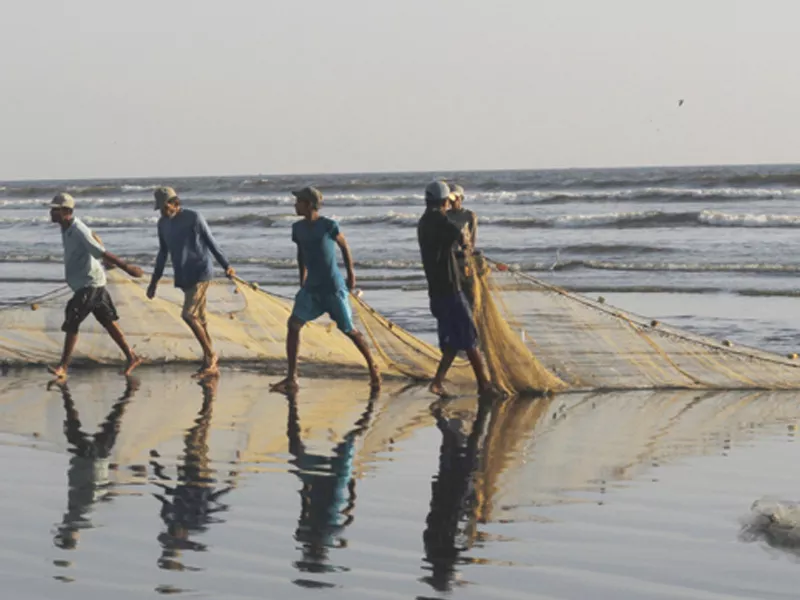The Sindh government has officially enforced a ban on all types of fine fishing nets, aiming to curb the ecological damage caused by overfishing and to preserve rapidly depleting fish stocks along the provincial coastline.
The Karachi Fisheries Harbour Authority (KFHA) formally issued notifications to all fishing stakeholders, including trawler owners and fishing associations, confirming the immediate implementation of the restriction.
Ecological Crisis Forces Government Action
According to officials, the widespread use of fine-mesh nets has severely impacted marine biodiversity in Sindh’s territorial waters, especially within creek areas and up to 12 nautical miles from the coastline. Fishermen’s representative Abdul Majeed Motani voiced concerns over the long-standing problem, noting that past bans were rarely enforced, and if the current trend continues, at least 35 marine species — including shrimp — could face extinction.
He highlighted the importance of mangrove ecosystems, which serve as natural breeding grounds for many aquatic species, warning that indiscriminate fishing practices are destroying these vital habitats.
READ MORE: Huawei Unveils CloudMatrix 384 Supernode — A Direct Challenge to Nvidia’s AI Dominance
Legal Backing for Conservation Efforts
The ban has been solidified through amendments to the Sindh Fisheries Ordinance, 1980, specifically:
-
Rule 25-A (2): Prohibits the use of encircling nets, purse seine nets (locally known as wire net or ring net), and bottom trawls (Gujja, Gujjo, Gujji) within creeks and 12 nautical miles from the Sindh coastline.
-
Rule 25-A (3): Makes it clear that even licensed fishers are forbidden from using banned nets inside this protected zone. Only gillnets with a mesh size of at least 120mm and shrimp nets no smaller than 60mm are permitted — and only beyond the 12-nautical-mile limit.
Additionally, the use of set bag nets (Bulla/Bullo) and seine nets (Katra) has been banned in creeks and estuarine waters to further safeguard local fish populations.
Enforcement Is Key
While the regulatory framework marks a significant step toward sustainable fishing, marine experts and community representatives agree that effective and continuous enforcement will be the real test of success. Without it, the fragile marine ecosystem and livelihoods dependent on fishing remain at risk.



